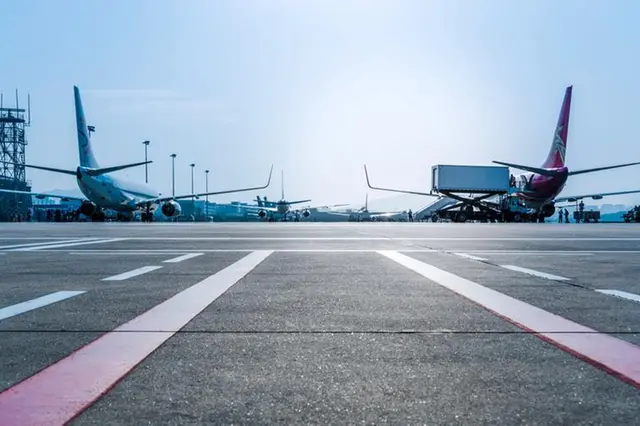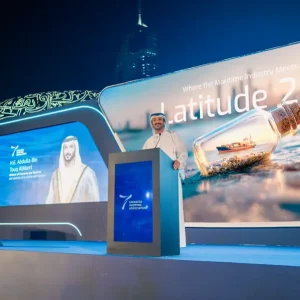Dubai’s aviation sector is preparing for a major leap forward with a new fuel infrastructure project that will support long-term airport growth and enhance jet-fuel supply reliability. Emirates General Petroleum Company (Emarat) has announced that its affiliate, Emdad Aviation Fuel Storage, has selected Bilfinger to deliver engineering and design services for a cross-country aviation-fuel pipeline. This new pipeline will connect the Emdad terminal at Jebel Ali directly to the fuel depot at Al Maktoum International Airport in Dubai South, creating a modern and efficient fuel logistics route.
The move reflects Dubai’s strategy to strengthen its aviation backbone as Al Maktoum International Airport undergoes significant expansion. The project is expected to improve safety, enhance efficiency, and ensure uninterrupted fuel availability for airlines operating in the emirate.
Strengthening Dubai’s Aviation Fuel Network
The aviation industry in Dubai is entering a new phase of growth. With increasing aircraft movements and the massive development plans underway for Al Maktoum International Airport, fuel infrastructure needs to keep pace. Emarat’s leadership recognizes that aviation fuel is a strategic resource, and ensuring a stable supply chain is a national priority.

According to Emarat, the new pipeline will deepen reliability by reducing dependency on other transportation methods and enhancing the overall capacity of the supply system. It will also provide a safe and stable channel for delivering fuel directly to the airport, ensuring consistent support for operations as flight volumes continue to rise.
The project is not just about meeting today’s needs but preparing the emirate for the next decade of aviation expansion. With Dubai positioning itself as a global hub for passenger and cargo travel, building a robust fuel network is essential.

Creating a Unified Logistics Corridor
One of the most transformative aspects of the project is the integration of the Jebel Ali terminal with Al Maktoum International Airport into a single, connected logistics corridor. Emdad Aviation Fuel Storage plays a key role in managing fuel operations, and the pipeline will substantially enhance its ability to supply the airport efficiently.
By establishing a direct pipeline route, the system will be able to move fuel faster and more reliably. This reduces the need for road-based fuel transport, cutting congestion and minimizing the risks associated with transporting fuel over long distances.
Emdad’s leadership has emphasized that the project aligns closely with Dubai’s broader logistical and infrastructure goals. Through collaboration with Emarat and relevant authorities, the company will ensure the pipeline meets stringent safety, operational, and regulatory standards. The unified corridor will streamline supply operations and support smoother fuel handling, improving turnaround times and boosting operational performance for airlines.
Bilfinger’s Engineering Role
Bilfinger, a well-established engineering and industrial services provider, has been appointed to deliver end-to-end engineering support for the project. This includes planning, design, project management, coordination, and securing required approvals. With experience in large-scale infrastructure projects, Bilfinger brings multidisciplinary expertise that will be crucial for ensuring a seamless process from early design stages to final commissioning.
The company’s responsibility extends to managing safety standards, ensuring compliance with regulatory requirements, and reducing risks during execution. Their use of digital solutions, engineering models, and modern project management tools will enable faster decision-making and precise coordination with authorities.
Bilfinger will also focus on ensuring that every part of the project is optimized for long-term performance. Their team will work to guarantee smooth integration with existing systems at both Jebel Ali and Al Maktoum International Airport, allowing for a clean operational handover once construction is complete.
Improving Operational Efficiency
The new aviation-fuel pipeline will play a major role in enhancing overall efficiency across Dubai’s fuel supply network. Direct connectivity reduces the time, cost, and complexity involved in transporting large volumes of fuel. For airlines, this translates into more predictable operations and reduced turnaround times, supporting better scheduling and fewer delays.
The pipeline will be designed to handle higher throughput, accommodating future increases in flight operations as Al Maktoum International Airport grows. By reducing reliance on road tankers, the new system improves fuel access during peak periods and adds resilience to the supply chain.
Airlines operating from the airport will benefit from improved service reliability, as the direct fuel supply will be more stable and less affected by external logistical factors. The enhanced efficiency also aligns with Dubai’s broader vision of creating world-leading aviation infrastructure powered by modern technology and streamlined processes.
Supporting Al Maktoum International Airport’s Expansion
Al Maktoum International Airport is at the heart of Dubai’s long-term aviation strategy. It is set to become one of the largest airports globally, with the capacity to handle more passengers, aircraft, and cargo than ever before. This large-scale expansion requires equally strong infrastructure to support operations, and fuel supply is one of the most critical components.
The new pipeline will help accommodate this growth by offering a scalable solution that can adjust to rising demand. It supports operational certainty and ensures that the airport’s fuel needs are met as new terminals, runways, and logistics zones become operational.
With Dubai’s aviation sector expected to play an even more influential role in global travel and logistics, infrastructure developments like this pipeline are essential for sustaining momentum and maintaining operational stability.

Commitment to Safety and Technical Standards
Health, safety, and environmental standards are core priorities for both Emarat and Emdad. The pipeline project will follow a strict safety framework that ensures compliance with technical guidelines and regulatory requirements. Every phase of the project, from engineering design to installation and commissioning, will be executed under strict supervision to prevent risks.
Integration with existing terminal and airport operations will be carefully managed to avoid disruptions. The design will incorporate advanced monitoring systems, leak detection mechanisms, and robust engineering controls to maintain safe operations throughout the pipeline’s lifespan.
Emarat and Emdad will continue to supervise the project closely to ensure quality and safety remain at the highest level. This emphasis on safe and responsible delivery reinforces Dubai’s commitment to excellence in critical infrastructure.
Building a Future-Ready Fuel Infrastructure
The collaboration between Emarat, Emdad, and Bilfinger sets the stage for a modernized fuel logistics network that strengthens Dubai’s aviation ecosystem. The pipeline is more than just a transport channel; it represents a strategic investment in the future of aviation in the UAE.
As Dubai aims to enhance its position as a global aviation leader, infrastructure projects like this pipeline become essential. They ensure that airlines, logistics partners, and airport operators have reliable access to fuel, enabling smoother operations and supporting expansion plans.
The project also demonstrates Dubai’s forward-thinking approach, where planning for future demand starts today. By focusing on scalability, compliance, and operational excellence, the pipeline is poised to become a vital component of the emirate’s aviation fuel backbone.
Conclusion
The appointment of Bilfinger to design and engineer a new jet-fuel pipeline between Jebel Ali and Al Maktoum International Airport marks a significant milestone for Dubai’s aviation industry. The project will enhance efficiency, strengthen safety, and support long-term airport expansion. With Emarat and Emdad spearheading the effort and Bilfinger providing engineering leadership, the new pipeline promises to deliver a future-ready fuel infrastructure that aligns with Dubai’s global aviation ambitions.
The integrated logistics corridor, improved fuel throughput, and commitment to high safety standards showcase Dubai’s dedication to building resilient and scalable infrastructure. As Al Maktoum International Airport continues its journey toward becoming a world-leading aviation hub, this pipeline will serve as a cornerstone of its operational strength.
Do follow UAE Stories on Instagram
Read Next – UAE: Azizi Riviera Phase IV Work Nearly 65% Completed














